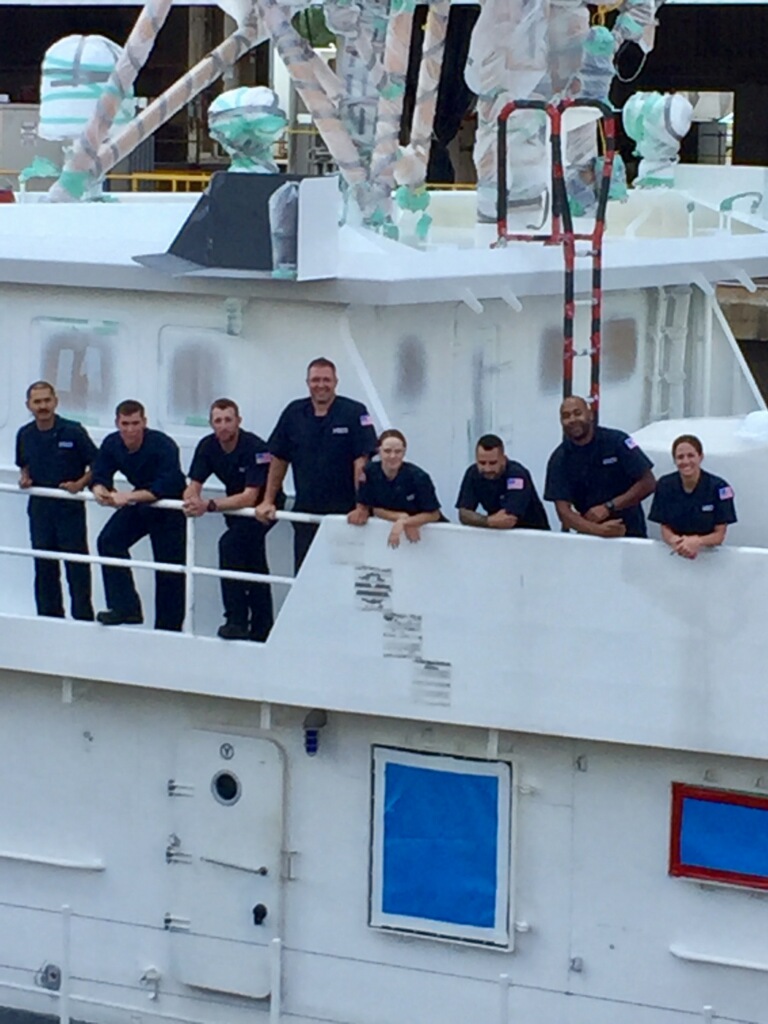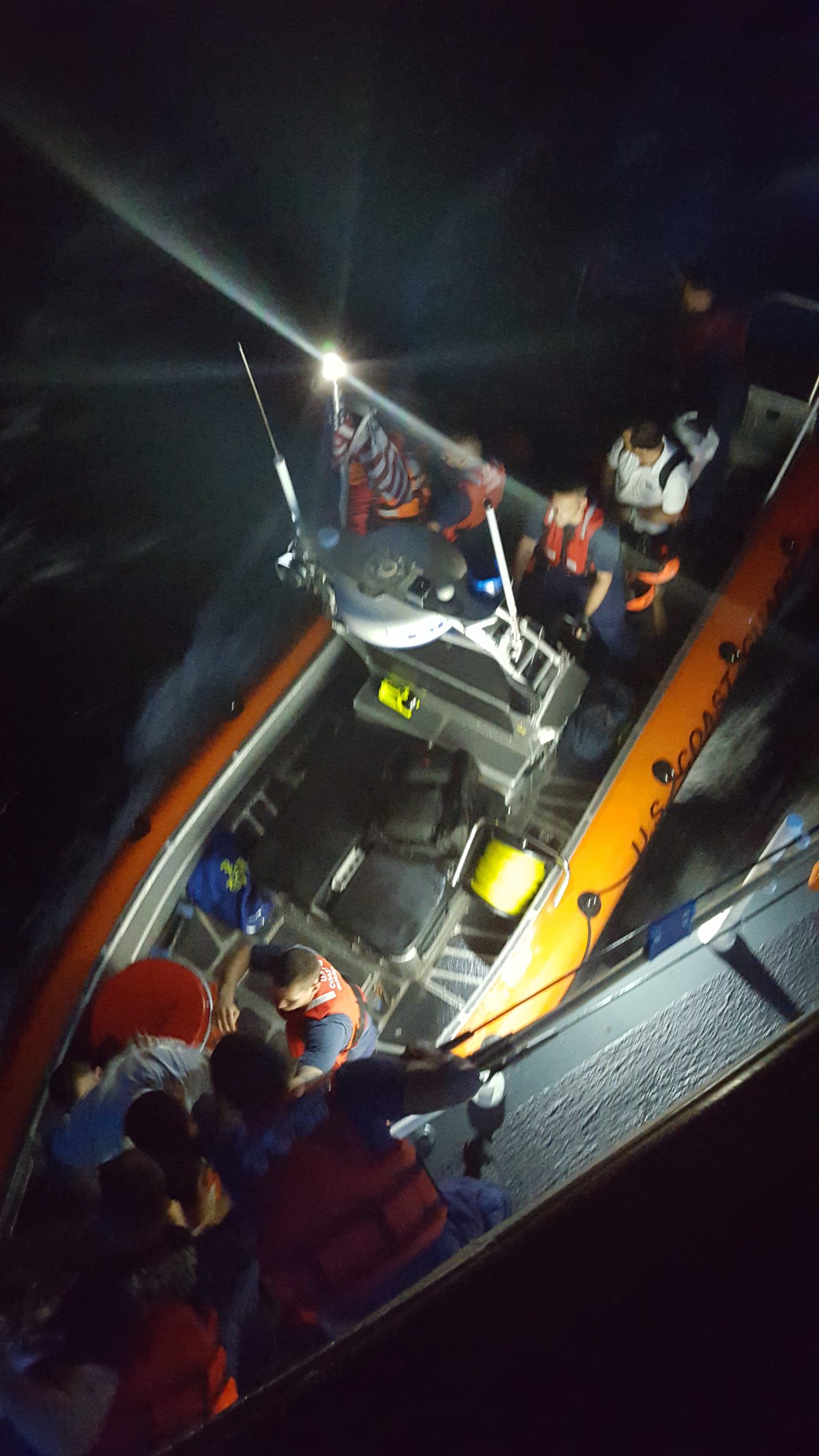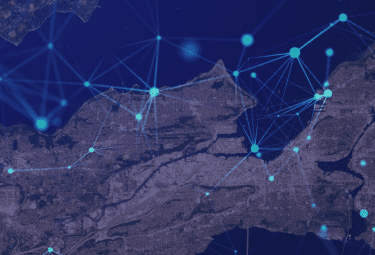Innovation to Impact. See you at the July ESIP Meeting.
Guest Blog: Teamwork, Military Training, and the Skills Needed for Data Science Jobs

In his guest blog, Community Fellow Chad Lanctot shares how two decades in the Coast Guard prepared him for a transition into civilian data science jobs. During his time as a graduate student at the University of Tennessee Knoxville, Lanctot served as a 2023 Community Fellow for the Physical Samples Cluster in Earth Science Information Partners (ESIP).
I proudly served in the U.S. Coast Guard for 23 years, during which I honed a diverse set of skills dedicated to our paramount mission: safeguarding lives. In the past year, I had the privilege of collaborating with Earth science data experts as a part of the ESIP Physical Samples Cluster. Freshly armed with an MS in Information Sciences from the University of Tennessee Knoxville, my experience at ESIP has prompted me to contemplate the invaluable contributions veterans can offer to the broader data science community.
What ESIP and the Military Have in Common
The ESIP community and the military share intriguing parallels, with a striking commonality being their ability to unite diverse individuals from disparate backgrounds in the pursuit of solutions to seemingly insurmountable challenges.
Drawing from my dual roles as both a student and a teacher, I've witnessed firsthand the emergence of innovative solutions to complex problems from unexpected sources. While in graduate school, my mentor presented me with a significant challenge: to embark on an independent project that involved identifying and resolving a pressing issue. She encouraged me to “find a problem and solve it.” This directive led me to initiate a project known as “Modularity in Emergency Data Management.”
In the Coast Guard, the practice of debriefing and analyzing operations at the unit level serves as a fundamental strategy for process improvement, a pivotal aspect of our commitment to operational excellence. In the context of this challenge, my independent project marked a significant stride forward. I conceptualized and implemented a standardized metadata framework aimed at capturing and disseminating FEMA case packages through public repositories.
Aboard the Margaret Norvell
This is a cross-section of the enlisted crew of the Margaret Norvell in 2016 as we were getting towed into position to have our cutter dry docked for major inspection and repairs.

First Cutter
This is me in front of my first cutter, the 270′ Medium Endurance Cutter Forward. She took me to the Caribbean and South America during the year I was onboard.

Rescue in Miami
We responded to a sinking yacht with 20 people on board.
We rescued everyone and this is a shot of people being transferred to the cutter via our small boat.

This kind of work is common in ESIP. Behind-the-scenes process improvement is part of the community's power. Throughout my participation in ESIP conferences, I had the distinct privilege of engaging in a diverse array of sessions, spanning both virtual and in-person formats. I am especially impressed by the work being conducted by the Disaster Lifecycles Cluster, and had the opportunity to present my research project at the 2023 July ESIP Meeting.
These experiences consistently inundated me with a wealth of new information, much of which went beyond the scope of my graduate school studies. Nevertheless, I eagerly embraced the challenge of absorbing these insights, diligently following presentations, and attempting to synthesize solutions through the lens of my own experience and expertise.
Data Science Needs Teamwork – Which Vets Excel At
Military veterans typically excel in two areas: discipline and collaboration. Typically they have a strong background in structured work environments. Data science projects also require rigorous methodologies and adherence to protocols, making veterans well-suited for managing and executing projects efficiently.
Military operations depend on effective teamwork and collaboration. Veterans are accustomed to working with diverse groups of individuals to achieve a common goal. In data science, where cross-functional collaboration is often required, veterans excel at fostering a cooperative and cohesive team atmosphere.
I am an example of how veterans, when provided with focused and immersive training programs, can swiftly acquire expertise and excel in roles that traditionally require extensive formal education. It underscores the principle that educational backgrounds, while important, do not singularly define a person's potential to thrive in a specific role. Instead, their commitment, adaptability and capacity for continuous learning play pivotal roles in determining their success and their ability to make substantial contributions to an organization.
ESIP brings together collaborators
ESIP supports virtual and in-person collaborations for cross-domain data professionals on common data challenges and opportunities. Alongside our partner organizations, we create space for Earth science data professionals to connect.
Learn more and join an ESIP Collaboration Area.
This blog was written by Chad Lanctot with edits by Allison Mills and Megan Carter from ESIP.
ESIP stands for Earth Science Information Partners and is a community of partner organizations and volunteers. We work together to meet environmental data challenges and look for opportunities to expand, improve, and innovate across Earth science disciplines.
Learn more esipfed.org/get-involved and sign up for the weekly ESIP Update for #EarthScienceData events, funding, webinars and ESIP announcements.



